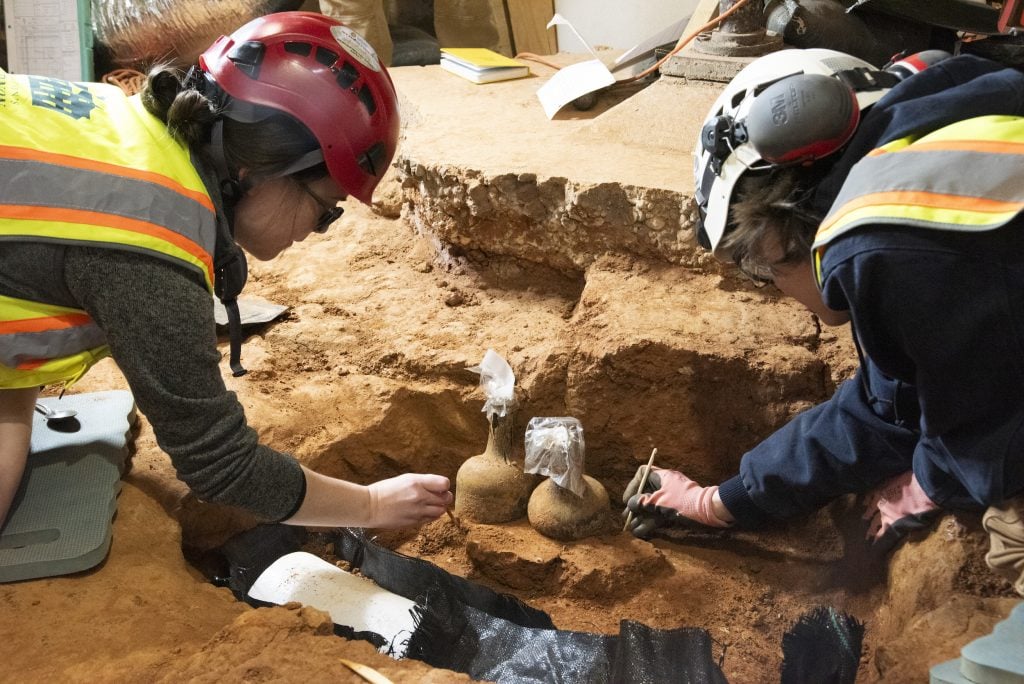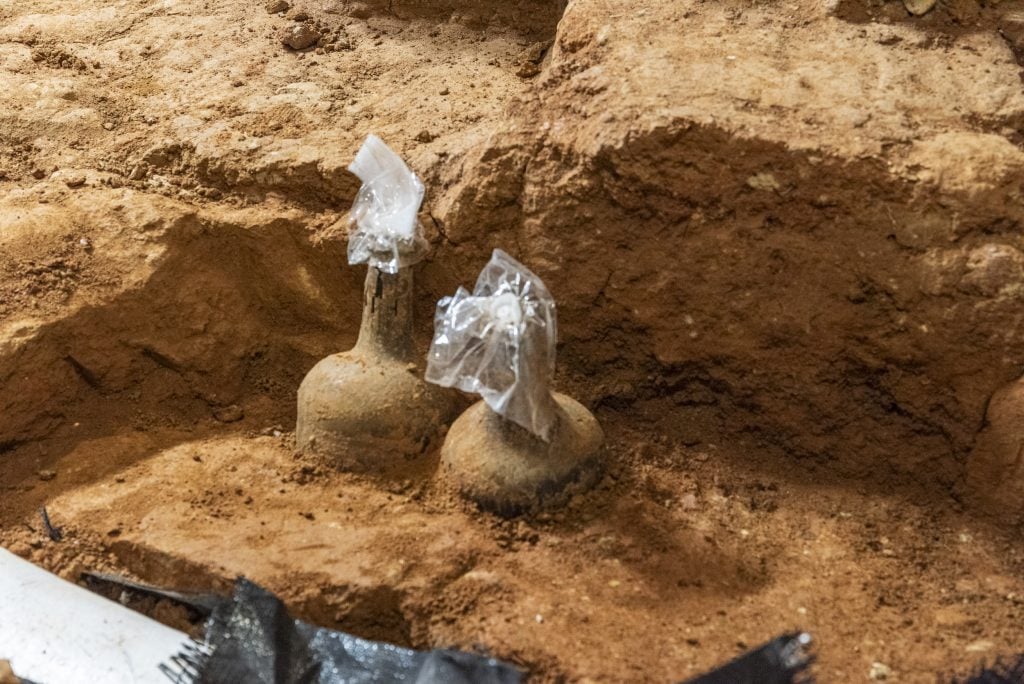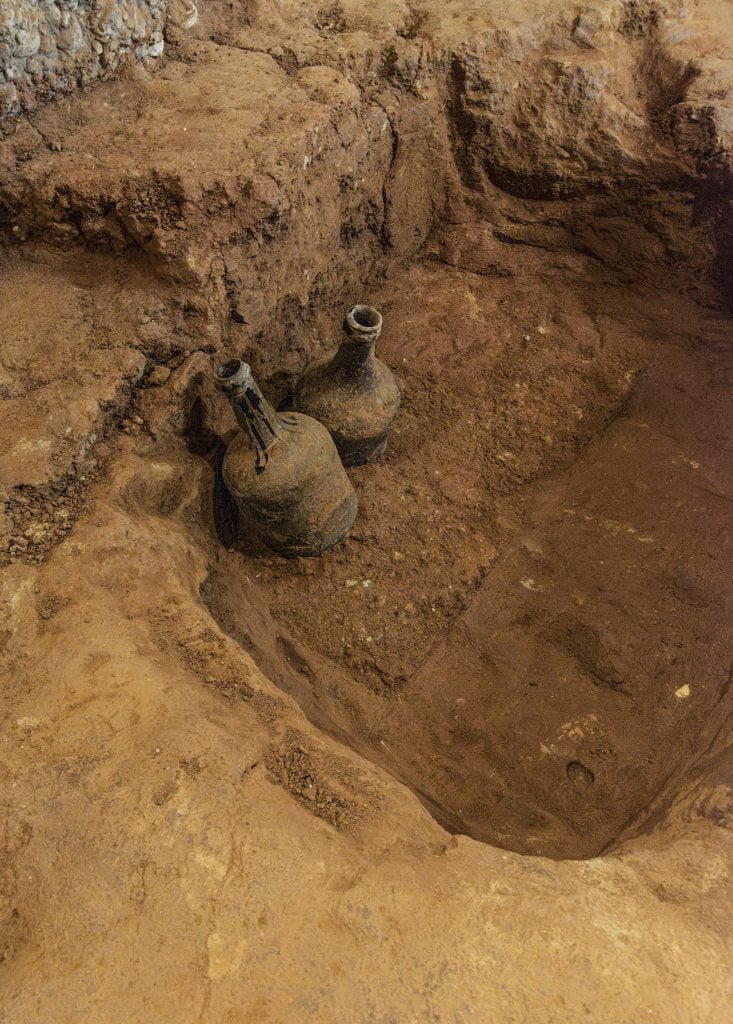Archaeology & History
250-Year-Old Bottles of Cherry Liqueur Unearthed at George Washington’s Home
The vessels and liquid remain intact, with scents of cherry blossom.

Archaeologists at George Washington’s home in Virginia, Mount Vernon, have discovered two glass bottles filled with a cherry liquid buried beneath a brick floor laid in the 1770s. The project archaeologist Nick Beard found the mouth of the first glass bottle beneath a layer of hardened dirt in the basement of the residence, and was shocked to find that not only was the bottle fully intact, but that it contained a liquid. The first bottle was found in November 2023 and a second bottle was discovered just last month.
The dark green glass bottles were entirely intact and sealed, and are believed to have been imported from England and date from the 1740s or ’50s, before the Revolutionary War. In order to stabilize the glass—which had not been exposed to the atmosphere above the ground for almost 250 years—the team at the Mount Vernon archaeology lab removed the liquid from the bottles. The liquid contained whole cherries (including their stems), which apparently still retained the “characteristic scent of cherry blossoms familiar to residents of the region.”

Photo: Mount Vernon Ladies’ Association (2024).
The bottles were possibly buried in order to be consumed at a later date. “Cherry bounce,” made with cherry juice and brandy, was a popular drink during the 18th century, but was typically stored in larger quantities, making it likely that the cherries found at Mount Vernon were preserved in their bottles to be used for cooking.
The basement in which the bottles were found may have been used as a storeroom for comestibles. The liquid in the bottles is thought to be partly groundwater which soaked in through the degrading cork stoppers.

Photo: Mount Vernon Ladies’ Association (2024).
The cherries in the liquid were likely harvested by enslaved people on Mount Vernon’s grounds. More than 300 people were enslaved on the plantation at Mount Vernon by the time of Washington’s death in 1799. A bottle of cherries was also found buried in Thomas Jefferson’s Virginia estate Monticello in 1981. During his lifetime, 400 enslaved people worked in the house and grounds.
In a press statement released on April 22, Mount Vernon’s President and CEO Doug Bradburn said that the “blockbuster find” comes “at the beginning of an exciting and transformational project to strengthen and restore the home of the nation’s first president so that it will be stronger than ever when we celebrate America’s 250th birthday in 2026. This historic preservation project is our birthday gift to America.”
The bottles were found during excavations and renovations forming part of the Mansion Revitalization Project, which began in 2023 to repair and reinforce the early 18th-century building that currently receives thousands of visitors per day. The project will see drainage improved, a new state-of-the-art heating and air conditioning system installed, and repairs done to Mount Vernon’s framing and masonry. Washington inherited Mount Vernon in 1761 from his father who had originally built the house in the 1730s. The president lived there for 45 years, passing away in the bed on the second floor aged 67.
The bottles and the liquid—siphoned into smaller containers—have left Mount Vernon for scientific analysis.





